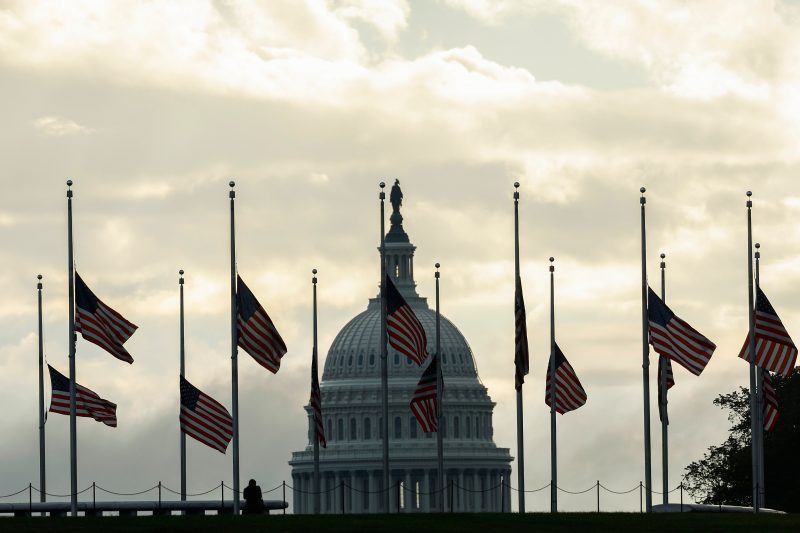
Fears surge that radical Islamist terrorists will target the U.S.

In the middle of the night on June 12, 2016, a gunman entered the Pulse nightclub in Orlando and opened fire. By the end of his attack, 49 people had been killed and more than 50 injured in one of the worst mass shootings in American history. And in a call placed to police in the middle of the attack, the shooter offered a rationale: He was committing murder in the name of the Islamic State.
The attack re-centered the political conversation around the dangers of terrorist attacks undertaken by radical Islamist actors. The previous December, an attack in San Bernardino, Calif., left 14 people dead and spurred Donald Trump’s pledge to ban Muslim immigrants from entering the United States. The Pulse shooting increased public concern about similar attacks, thanks in part to the link to the still-fearsome Islamist movement the Orlando shooter had invoked.
A couple of weeks after Pulse, Fox News asked Americans how concerned they were about “attacks by Islamic terrorists in the United States.” Nearly 8 in 10 Americans said they were very or extremely concerned, including more than 9 in 10 Republicans.
This month, Fox News’s pollsters asked the same question again, as they have sporadically over the past eight years. In the most recent poll, though, the level of concern was again over 70 percent — with more respondents saying they’re “extremely concerned” than said the same thing shortly after the Orlando massacre.
More than half of Republicans say they’re extremely concerned, up more than 20 points since Fox News asked the question in May. Back then, about half the country expressed some concern about such an attack, including less than half of Democrats. Those concerns have risen across the board.
Why? Clearly in large part because of another attack, albeit not one in the United States. The brutal Hamas incursion into Israel that triggered the ongoing conflict in Gaza happened in early October. Since then, there’s been an increase in concern about attacks rooted in radical Islamist ideology — particularly thanks to the sponsor of the poll, Fox News itself.
In the immediate aftermath of the Hamas attack, right-wing voices (including Donald Trump) began comparing that attack across Israel’s border to the purported risk at the U.S. border with Mexico. For Trump in particular, this was largely an opportunity to exacerbate existing concerns about President Biden’s handling of border issues. There remains no evidence that terrorists have crossed into the United States undetected, from Hamas or any other group.
Fox News, though, has offered up this possibility repeatedly. Among other things, it has highlighted the number of people on the terrorism watch list stopped at border checkpoints, ignoring that the figure was higher in 2019. Since the Hamas attack on Oct. 7, Fox News has talked about terrorism or terrorists in the context of the border — excluding discussion of Israel — more than 800 times. That’s nearly four times as often as the subject was mentioned on CNN.
This is not to say that Fox News is solely responsible for the increase in concern about an attack, though it’s probably causally linked to the higher numbers for Republicans to at least some extent. Part of the increase since May could simply be a function of Americans suddenly being reminded of the ongoing risk of such terrorist attacks, something that has not been as present in the national consciousness over the past few years as it used to be.
But this is almost unquestionably a positive electoral development for Trump. He secured his lead in the Republican nominating contest in 2015 after the deadly attack in Paris and he was the overwhelming favorite of 2016 voters concerned about terrorism (though some of them may have identified terrorism as their top concern because they supported Trump, rather than the other way around). A 2024 election centered on addressing the perceived risk of terrorism across the U.S.-Mexico border is almost certainly not an election that works to Biden’s advantage.
That these concerns don’t appear to be rooted in an actual significant threat will, of course, not serve as a dissuasion for the former president.
